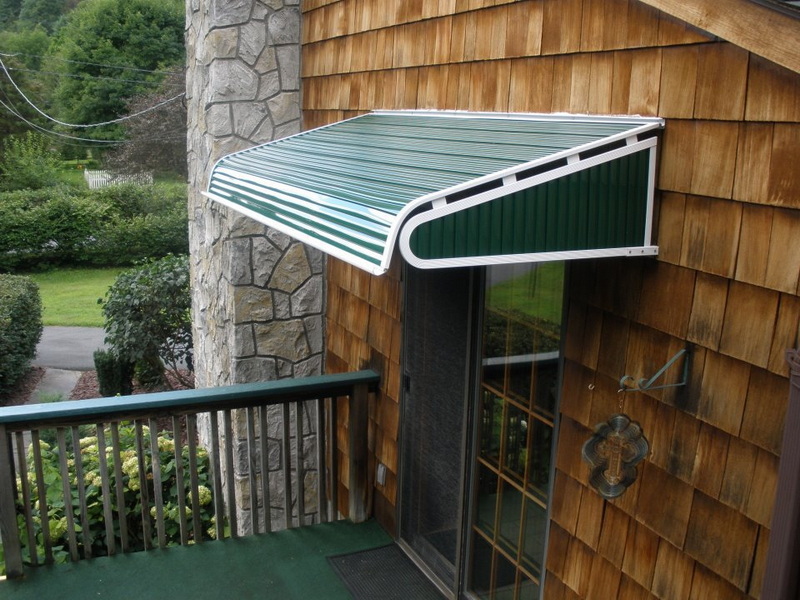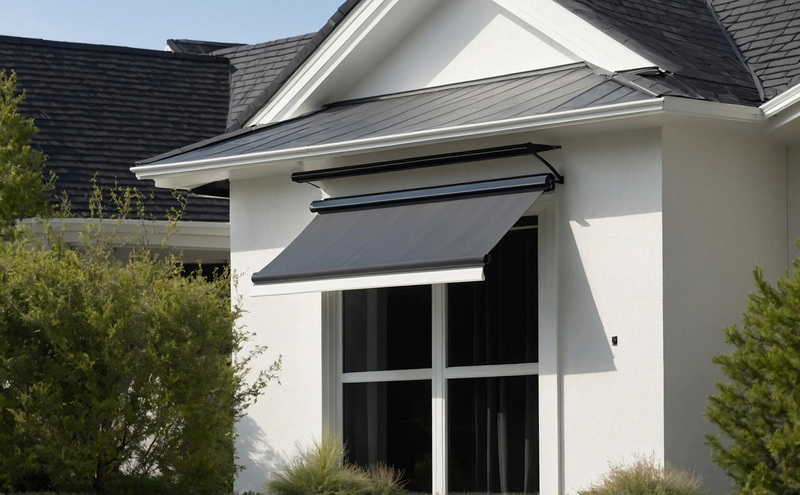English


Views: 222 Author: Dream Publish Time: 2025-01-03 Origin: Site











Content Menu
● Step-by-Step Guide to Glazing Aluminum Windows
>> Step 1: Remove the Old Glazing
>> Step 3: Measure and Cut New Glass
>> Step 6: Secure with Glazing Points or Clips
>> Step 7: Apply New Glazing Compound
>> Step 8: Install New Glazing Bead
● Additional Tips for Successful Glazing
● Common Issues When Glazing Aluminum Windows
● FAQ
>> 1. What type of glazing compound should I use?
>> 2. How often should I reglaze my aluminum windows?
>> 3. Can I glaze my windows in cold weather?
>> 4. What should I do if my window frame is damaged?
>> 5. Is professional help necessary for glazing?
Glazing aluminum windows is a crucial process for maintaining energy efficiency and aesthetic appeal in your home. This guide will walk you through the steps necessary to properly glaze aluminum windows, ensuring that you achieve a professional finish while enhancing the longevity of your windows.

What is Glazing?
Glazing refers to the process of installing glass into a window frame. This involves securing the glass with a glazing compound or bead, which helps to keep the glass in place and provides insulation against weather elements. Proper glazing not only improves insulation but also enhances the overall appearance of your windows.
Before starting, gather the following tools and materials:
- Safety Gear: Safety glasses, gloves
- Tools:
- Putty knives (one thin flexible and one thick rigid)
- Slotted screwdriver
- Heat gun (for softening old glazing)
- Caulking gun with silicone or latex-based caulk
- Measuring tape
- Utility knife
- Wiss snips (for cutting glazing beads)
- Suction cup (for handling glass)
- Paintbrush (for applying primer)
- Materials:
- New glass pane (if replacing)
- Glazing compound (latex or silicone)
- Setting blocks (if needed)
- Primer (if applicable)
1. Safety First: Wear safety glasses and gloves to protect yourself from glass shards.
2. Remove the Glass: Use a putty knife to carefully pry out the old glazing bead. If the glass is intact, gently lift it out using a suction cup.
3. Clean the Frame: Scrape away any old glazing compound from the frame using a putty knife. This step is crucial as any leftover material can affect the adhesion of new glazing.
1. Inspect for Damage: Check the frame for any signs of rot or damage. Repair any issues before proceeding. If you find significant damage, consider replacing parts of the frame.
2. Prime the Sash: If your frame is wooden, apply an oil-based primer to protect it from moisture and prepare it for painting if needed.
1. Take Accurate Measurements: Measure the height and width of the frame where the glass will fit. Always measure twice to ensure accuracy.
2. Cut Glass to Size: If you're replacing the glass, cut it to size according to your measurements. Many hardware stores offer glass cutting services if you prefer not to do it yourself.
Apply Glazing Compound: Use a caulking gun to apply a bead of glazing compound along the backstop of the sash where the glass will sit. This is known as back bedding and provides a cushion for the glass.

1. Set Glass in Place: Carefully place the new glass pane into position on top of the back bedding.
2. Ensure Proper Fit: Make sure there's an even gap around all sides for proper sealing. This helps prevent air leaks and improves insulation.
1. Install Glazing Points: Insert new glazing points or spring clips every 8 inches along the edges of the glass to hold it securely in place.
2. Press Down Gently: Use a putty knife to press them into place without applying too much pressure on the glass, as this could cause breakage.
1. Shape and Apply Compound: Roll a small amount of glazing compound into a rope shape and press it into the joint between the glass and frame.
2. Smooth Out Excess: Use a putty knife dipped in mineral spirits to smooth out any excess compound, ensuring it sheds water effectively.
Applying Glazing Compound
1. Cut Bead to Length: Measure and cut new glazing beads using Wiss snips.
2. Snap Bead into Place: Start at one corner and snap the bead into place around the perimeter of the window, ensuring it fits snugly against both the frame and glass.
1. Check for Gaps: Inspect all edges for any gaps where air or water could enter.
2. Clean Up Excess Compound: Wipe away any excess glazing compound with a damp cloth before it dries.
- Choose Quality Materials: Invest in high-quality glazing compounds and beads designed specifically for aluminum windows to ensure durability.
- Consider Weather Conditions: Avoid glazing during extreme temperatures or wet conditions, as these can affect adhesion.
- Practice Patience: Take your time during each step to ensure accuracy and quality; rushing can lead to mistakes that may require redoing work later.
While glazing aluminum windows can be straightforward, several common issues may arise:
- Cracked or Broken Glass: Always handle glass carefully during installation; use suction cups for larger panes.
- Poor Adhesion of Compound: Ensure surfaces are clean before applying new glazing compound; dirt or moisture can hinder adhesion.
- Inconsistent Bead Application: Practice applying consistent pressure when smoothing out beads; uneven application can lead to leaks.
Glazing aluminum windows is an essential skill that can save you money on energy bills while improving your home's appearance. By following these steps carefully, you can ensure that your windows are sealed properly against weather elements, enhancing their durability and functionality.
In summary, proper glazing not only protects your home from drafts but also contributes significantly to its energy efficiency by minimizing heat loss in winter and heat gain in summer.

You can use either latex-based or silicone-based glazing compounds depending on your preference and project requirements. Latex compounds are easier to work with and clean up, while silicone offers superior weather resistance.
It is recommended to reglaze every 5-10 years or whenever you notice signs of wear or damage such as cracks in the glass or deteriorating seals.
Yes, but ensure that your chosen glazing compound is suitable for lower temperatures as some compounds may not adhere well in cold conditions.
Repair or replace any damaged sections of your window frame before proceeding with glazing to ensure proper sealing. If necessary, consult with a professional for extensive repairs.
While many homeowners can successfully glaze windows themselves, hiring a professional may be beneficial if you're unsure about any steps involved or if you have large or complex window designs.
[1] https://www.youtube.com/watch?v=RBoow3ncGmU
[2] https://www.dap.com/resources-support/how-to-s-tips/window-door-siding/how-to-glaze-windows/
[3] https://www.acadbox.com/writing-skills-for-english-papers/
[4] https://www.youtube.com/watch?v=ch-sAkJ57FU
[5] https://www.swisco.com/guides/view73
[6] https://blog.csdn.net/vor234/article/details/123386151
[7] https://www.youtube.com/watch?v=Zn2-XKbsnZc
[8] https://graduate.shisu.edu.cn/_upload/article/34/80/bd4949214d11ab764fb3259a644c/43473032-3cb2-43b9-9bf5-65d50d8519bd.pdf
[9] http://library.ttcdw.com/uploadfiles/201403/1395581407.pdf
Seven Requirements for External Doors And Windows of Passive Rooms
How Much Do You Know about The Design Standards for Aluminum Alloy Door And Window Dimensions?
Welding Vs Stainless Steel Fabrication: Understanding The Manufacturing Process Differences
Stainless Steel Fabrication Vs Powder Coated Steel: Durability And Cost Comparison
CNC Machining Vs Stainless Steel Fabrication: Pros And Cons for Industrial Use
Stainless Steel Fabrication Vs Carbon Steel Fabrication: Key Differences Explained
Stainless Steel Fabrication Vs Aluminum Fabrication: Which Is Right for Your Project?
Stainless Steel Grades 201 Vs 304: Cost Vs Performance Breakdown
316L Vs 316 Stainless Steel Grades: Which Is Better for Corrosion Resistance?
Comparing Austenitic Vs Martensitic Stainless Steel Grades: What You Need To Know?
